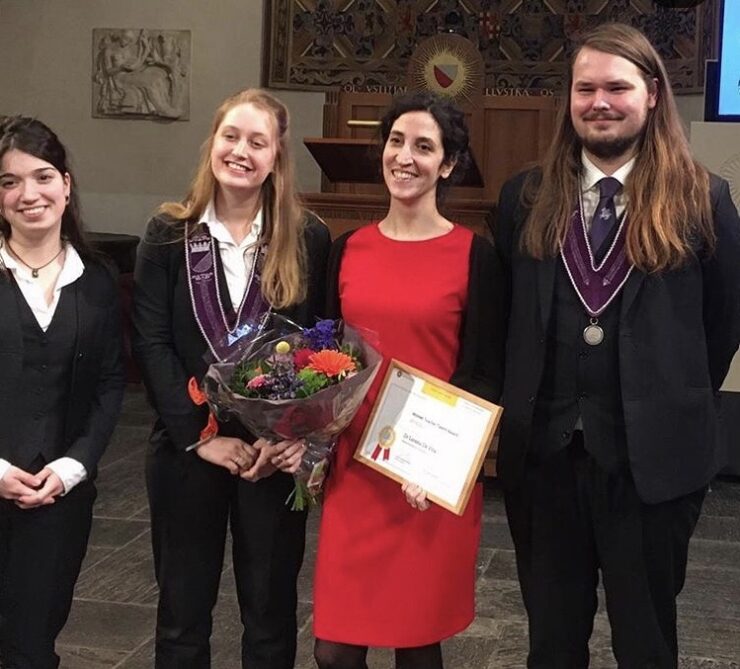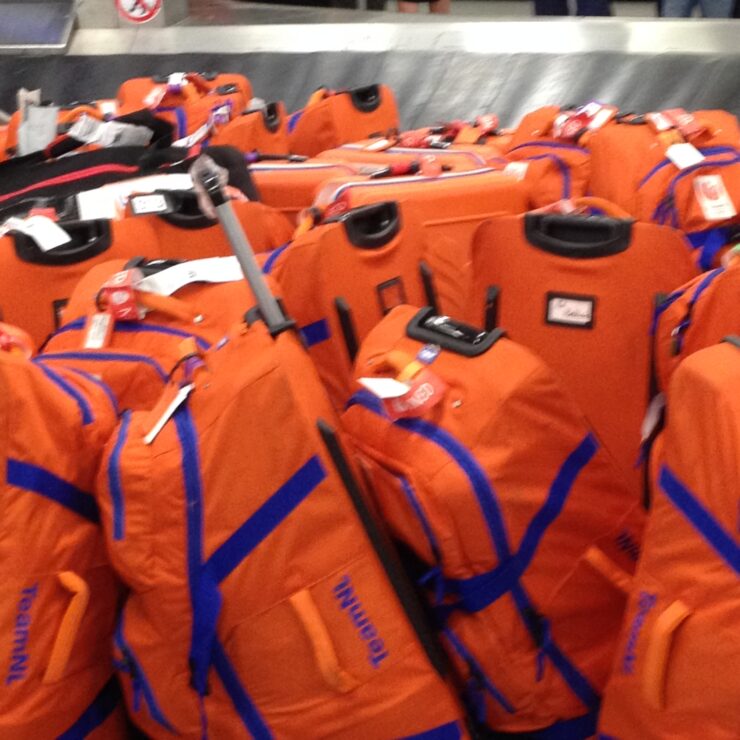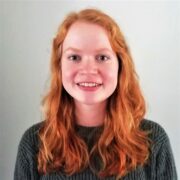TAUU council
Why focus on internationalisation?
Former T@UU council member Lorena De Vita, together with T@UU project leader Femke van de Glind, delivered a report on the topic of internationalisation.
Lorena explains why she selected this (tricky!) subject as her point of focus over the past 3,5 years.
This summer will mark the eighth anniversary of my arrival in the Netherlands. I landed at (a back then rather deserted) Utrecht University in August of 2016, after wonderful years of doctoral studies and a Teaching Fellowship at Aberystwyth University’s International Politics Department. I had moved to the UK years earlier to pursue my studies in International Relations at the London School of Economics. While I loved living in Rome, I simply could not fathom that someone interested in international politics and the history of conflict and reconciliation could understand such complex topics by staying put in one place.
By the time I arrived in Utrecht, I had been applying for positions in the Netherlands for about two years. Why? It is hard to say with certainty in retrospect, but I know for sure that visiting one of my dearest friends who was pursuing her MA in African Studies in Leiden while I was doing my PhD left a long-lasting impression. Here I found a centrally located, vibrant place where top-notch degrees were taught through the medium of English, and which hosted some stellar researchers, too. And, given my strong interest in European international history, being close to many archives was definitely a big plus.
But I had no idea of how the institutional system really worked. I had landed a short-term, teaching-only contract in an academic system that, in hindsight, I did not know or understand at all. A few years on, this all seems like a remote dream. I later went on to (be one of the very few to) get a permanent contract, one that also included some (little, but precious) research time. I got a BKOw, then became a BKOw tutor, and later a ‘meta teacher’ for all new (inter)national lecturers at the Faculty of Humanities. I kept teaching, took on more coordination responsibilities, and won a Departmental (2019), and later a University-wide (2020) teaching prize.

Throughout what might seem like a ‘success story’, there were so many moments in which I had no idea about what was the right thing to do in specific UU settings; or when I struggled because I did not understand the environment I had landed in. At those junctures, having the possibility to access informal knowledge, and ask (Dutch and international) colleagues for help, made all the difference.
When the opportunity presented itself to join the T@UU council as a member, I decided to focus my efforts on tackling the theme of internationalization at UU. At that time, I was just starting up my big research project, and many close colleagues (understandably) discouraged me from getting dragged into yet more teaching-related conversations. But I could not resist. I genuinely thought – and still think – that focusing on these questions, and engaging colleagues and students on the topic of internationalisation, will be beneficial – and not only for our teaching, but for our research work as well.
When I embarked on this project, little did I know that internationalisation in the Netherlands was going to become such a hot topic. So hot, in fact, that the media in many countries have started discussing what is going on here. Yet, many of the questions and hypotheses that we share in the report originated much earlier than the ‘kamerbrief‘ and will stay with me, and us, for a long time to come.
When drafting the report, it was not easy to come up with tips that could be both specific and yet applicable to ideally all departments and institutes at the UU. I hope that the recommendations – about harnessing existing synergies and know-how; enhancing language inclusivity; and learning from, and owing, our successes and pride at being an international community – will resonate, at least with some.
What do we, as members of the UU community, understand by ‘internationalisation’? Was it all just a marketing bluff, or is there something crucial and necessary at stake here about the fundamental principles of doing research and being a learning community – something that is crucial for being ‘open’ and ‘future proof’ as our University aims to be?
Working on this project brought me, mentally, to that summer of eight years ago, when I first arrived. What was I expecting back then? What did I find? It is so very difficult to say for sure now.

But, in many ways, my specific experiences or memories are not that relevant here – much of what is in the report stems from interactions with countless colleagues and students here, including those who took part in the meetings that led to this report. By serving in the T@UU, I hope to have managed to give a platform to some of their concerns, experiences, and wishes, too.
This report is the result of collaboration with Femke van de Glind, as well as of many more conversations – formal and informal, online and offline, in smaller and bigger groups – that I have had with students and colleagues (especially, though not exclusively) over the past three and a half years as a T@UU council member. I hope that it will be of interest to some, and I know that for those who believe in the strength of a diverse and inclusive academic community these questions will never lose their urgency.
 22 March 2024
22 March 2024
If you want to comment, please login on the left side of the page with your UU account..


